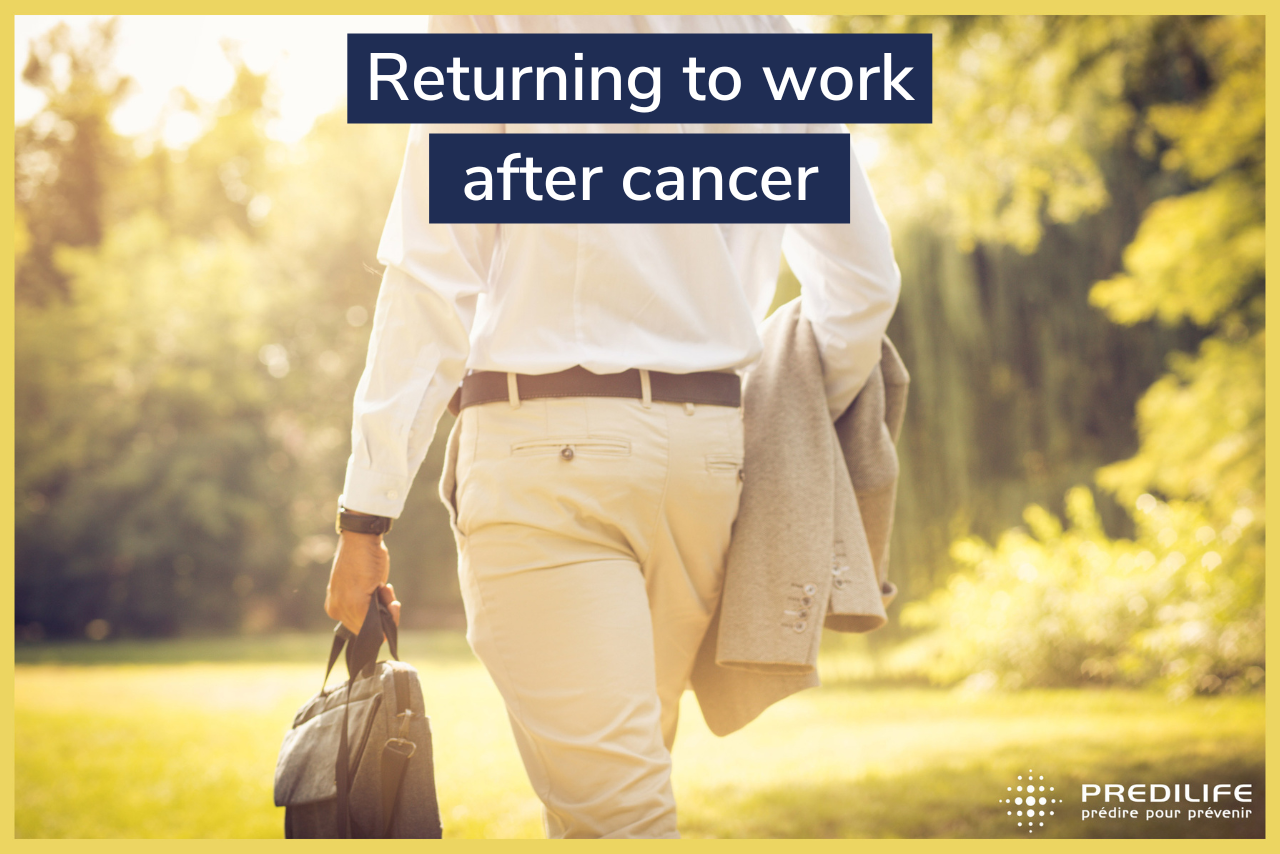Returning to work after cancer

The announcement of cancer is a real shock for the patient and those around him. His life, as he knows it, will be turned upside down with treatments, exams, hopes, fears, etc. Often the return to work appears as an objective to be achieved. Many patients equate returning to work with returning to life before cancer.
But it is important not to idealize this return to professional life. Cancer leaves marks and it is essential to anticipate this recovery for it to be truly beneficial.
The challenges of a return to work
Different reasons can lead a person to want to return to work and especially to look forward to this moment. Financial questions can come into play. But, more often than not, this return to professional life symbolizes the end of the disease. Therefore it should not be rushed.
Returning to their former company, reuniting with their work colleagues, allows some patients to feel integrated into society again and to be able to regain control of their lives. Cancer arrived taking many things with it. Many patients then have the impression of suffering their life and no longer having control of anything between fatigue, pain, different treatments, etc. Getting back to work is, in a way, taking back control.
It is also the way to reconnect with a social life. Cancer isolates and changes the outlook of loved ones. Seeing colleagues, customers and suppliers allows you to discuss things without the specter of cancer hanging over you.
Unfortunately, things don’t always go as planned. This is why we must not idealize this return to work too much and prepare it well so that it is really something positive for the person in remission from cancer.
How to succeed in this return to professional life?
The secret to a successful return to work after cancer is anticipation. This moment must have been organized beforehand. This does not mean that a recovery date must be set during treatment. On the contrary, it must allow the patient to know when he is ready to return to work and what he expects when he returns.
It is important to realize that during his work stoppage, the company may have changed: new tools may have been put in place, new objectives set, etc. It usually depends on the length of the work stoppage. But we must also realize that we ourselves have changed. Having to fight cancer leads to reviewing your priorities in life. There are many people who have overcome cancer and who have decided to take more time for themselves and no longer let work spill over into private life.
The side effects of the treatments should also be taken into account. A few weeks or months after the end of the treatments, immense fatigue can be felt. The body needs time to recover. This is why it may be appropriate not to resume immediately after the end of the treatments. This time will be beneficial to take stock, to regain control of your life and to allow your body to rest. A therapeutic part-time recovery can also be envisaged on the condition that the workload corresponds well to the working time.
To be able to put all this in place, it is essential to keep in touch with your company and your employer (or your superior) during the period of convalescence. It is also important to be able to speak frankly about the illness and the physical and moral consequences it entails so that the position can be arranged if necessary and the employer’s expectations are realistic.
Finally, there is the question of relationships with work colleagues. Some of them will not know how to behave and may hurt without meaning to. Here again, keeping in touch with the closest colleagues allows you to prepare well for your return.
Moreover, this return to work can be an opportunity to raise awareness among colleagues about cancer and organized but also personalized screening. You can also talk to your employer about prevention assessments which, using predictive tests, can advise personalized screening programs and thus promote early screening.